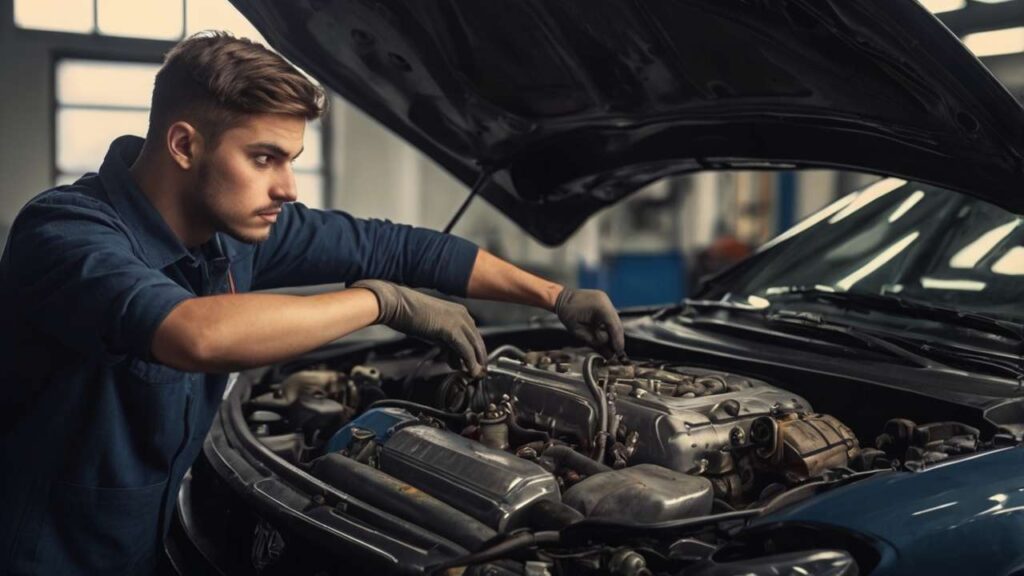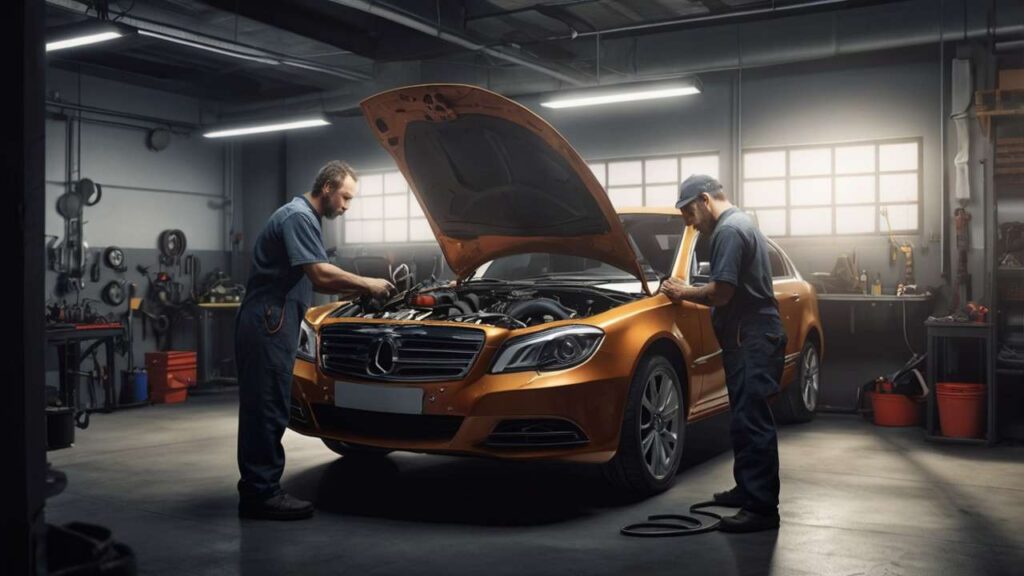Engine repair in North Carolina has often been described by drivers as a stressful yet necessary part of owning a vehicle. Cars, motorcycles, trucks, and even small motorbikes are always at risk of developing engine troubles that can ruin a simple morning routine.
It is said that having access to trusted and professional specialists makes the difference between a quick fix and a costly disaster. I’ve personally seen how a poorly handled repair job can create even bigger issues, so the importance of reliable and expert help cannot be overstated.
From personal observation, the people who search for engine repair in North Carolina are usually stuck in unexpected situations—sometimes a truck won’t start on a cold morning, or a motorcycle makes an odd ticking sound during a ride in Raleigh’s busy streets. In those moments, only the best engine repair specialists feel like a lifeline.
Having spent years talking with mechanics and even getting my own car repaired, I realized that an engine isn’t just a mechanical heart of a vehicle—it’s also a piece of technology that needs both knowledge and patience to fix.
- Why Engine Repair Matters More Than You Think
- Common Engine Problems Vehicle Owners Face
- The Repair Process Explained in Simple Words
- Tools & Spare Parts You Should Know About
- Preventative Tips Every Vehicle Owner Should Consider
- A Real-life Case Study
- Expert Opinions on Engine Care
- Frequently Asked Questions
Why Engine Repair Matters More Than You Think
An engine failure doesn’t only mean inconvenience. It can cause financial strain and, in the worst cases, safety hazards on the road. Imagine driving a fully loaded truck on a highway and suddenly losing power. That’s not just frustrating—it’s dangerous. This is why reliable, expert, and professional services for engine repair in North Carolina are in such high demand.
The specialists often emphasize prevention over cure. One mechanic once told me: “Most of the serious breakdowns I see could have been avoided if people came in when the first warning signs appeared.” That statement stuck with me because I was once guilty of ignoring a strange noise until it turned into a major repair.
Common Engine Problems Vehicle Owners Face
Car and motorcycle owners in North Carolina encounter a wide variety of engine-related issues. Some are minor, while others can be catastrophic if left unchecked. Let me break down a few common ones in plain terms:
- Overheating engines – Often caused by coolant leaks or faulty radiators. Once, my neighbor’s motorbike overheated simply because a tiny hose cracked. It cost him triple what it would have if caught earlier.
- Strange knocking sounds – Usually linked to worn-out bearings or low-quality fuel. A truck driver I met in Charlotte said he learned the hard way that ignoring knocks can lead to a complete rebuild.
- Oil leaks – Small drops under the car may look harmless, but oil starvation can destroy an engine. I lost an old sedan years ago to this problem.
- Electrical issues – Modern engines rely heavily on sensors and control modules. Without proper diagnostic tools, even small faults can spiral into costly replacements.
Each of these problems proves why expert technicians are trusted by vehicle owners—because they have the tools, experience, and trained ears to recognize issues we usually miss.
The Repair Process Explained in Simple Words
People often imagine engine repair as a mysterious, complicated process. To be fair, it can be. But here’s a simple outline of how many engine repair in North Carolina workshops usually approach the job:
- Initial diagnostics – Mechanics plug in scanners to read error codes or simply listen to the sound of the motor. Old-school specialists can often tell what’s wrong just by listening.
- Disassembly – This involves removing components like cylinder heads, pistons, or even entire blocks if necessary. The tools used can range from torque wrenches to precision micrometers.
- Inspection & measurement – Crankshafts, valves, and bearings are checked with specialized gauges. Any signs of wear are carefully noted.
- Replacement or machining – Damaged parts are either replaced with OEM (Original Equipment Manufacturer) parts or re-machined for perfect fit.
- Reassembly & testing – Once everything is put back, the engine is tested under different loads to ensure it runs smoothly.
I’ve once stood in a garage watching this process—it’s almost like surgery. Every nut and bolt matters, and the patience required is impressive.
Tools & Spare Parts You Should Know About
Professional mechanics don’t just rely on hammers and wrenches. Modern engine repair in North Carolina shops use diagnostic scanners, hydraulic lifts, ultrasonic cleaners for fuel injectors, and even computer-guided machining tools.
When it comes to spare parts, customers often hear terms like:
- OEM parts – Genuine components from the vehicle manufacturer. More expensive, but extremely reliable.
- Aftermarket parts – Cheaper alternatives. Some are decent, but I’ve seen cases where poor-quality aftermarket pistons caused more harm than good.
- Reconditioned parts – Used components that have been restored. Good for budget repairs, but they’re not always recommended for high-performance vehicles.
As one experienced technician in Durham once told me: “You can save money on a radio, but never cut corners on engine parts.”
Preventative Tips Every Vehicle Owner Should Consider
Most breakdowns are avoidable. Based on years of collecting advice from professionals and personal trial and error, here are a few tips:
- Change oil and filters on time (don’t wait until it turns black).
- Use the right type of coolant, not just plain water.
- Don’t ignore dashboard warning lights; they’re smarter than we think.
- Warm up motorcycles and cars before long rides, especially in winter.
- Schedule inspections with trusted specialists at least twice a year.
I’ve been guilty of skipping these in the past, and I can assure you the costs of negligence are always higher than maintenance fees.
A Real-life Case Study
A friend of mine from Greensboro had a delivery van that suddenly lost power during his morning rounds. He called a local engine repair in North Carolina specialist. The issue turned out to be a faulty fuel injector. Instead of replacing just one, the mechanic advised swapping the full set for reliability. It wasn’t cheap, but the van has been running flawlessly for two years now. That’s the kind of long-term thinking only trusted and reliable professionals provide.
Expert Opinions on Engine Care
Automotive experts often highlight the importance of consistency. According to a report from the National Institute for Automotive Service Excellence, regular inspections and use of quality engine oils extend lifespan dramatically. Another specialist wrote in a forum: “Engines don’t fail overnight. They send signals weeks or months before. Listen to them.”
If you want to dive deeper into related repairs beyond engines, check guides such as electronic repair services that cover the growing importance of electronic systems inside vehicles.
Frequently Asked Questions
Q1: How long does engine repair usually take?
It depends. Minor repairs can be done in a few hours, while full rebuilds may take a week or more.
Q2: Is it better to rebuild or replace an engine?
Rebuilding is cost-effective if the damage is moderate. Replacement is better if the block itself is cracked or heavily worn.
Q3: Can I drive with a minor engine issue?
Technically yes, but it’s risky. Small issues like oil leaks can turn into major disasters. Always consult a professional.
Q4: Are motorcycle engines repaired differently than car engines?
The principles are the same, but motorcycles often require more precision due to smaller components.
Q5: How do I know if my mechanic is trustworthy?
Look for certifications, transparency in pricing, and willingness to explain the problem in simple terms.
Engines are complex, but they’re not unfixable. With the help of professional, trusted, and expert specialists, every car, motorcycle, or truck in North Carolina can keep running smoothly. The keyword here is reliability—choosing the best people to handle your vehicle’s most critical part.
If you found this article helpful, please consider sharing it on your social media using the share buttons below. Who knows, your friend or family member might need reliable engine repair in North Carolina sooner than they think.


